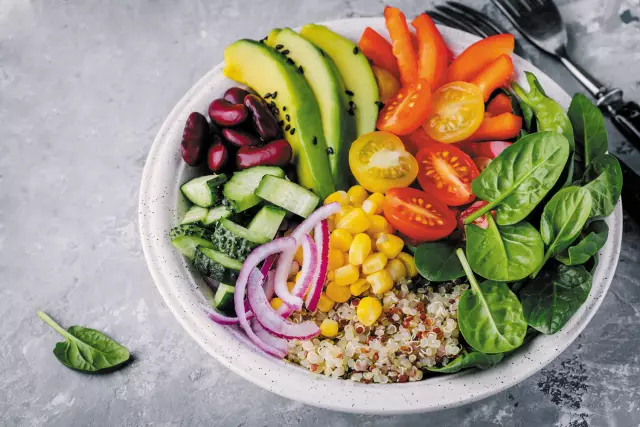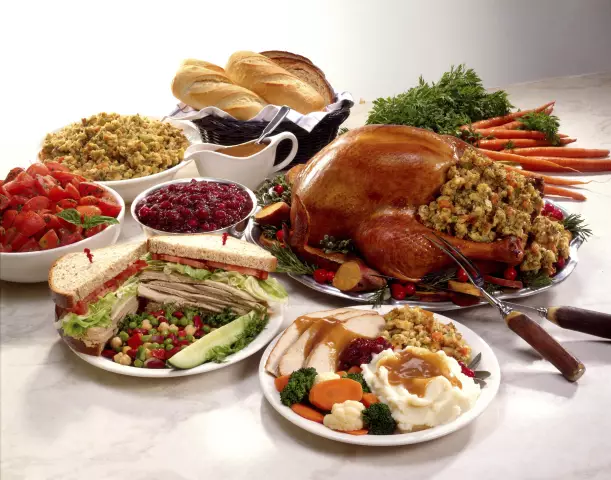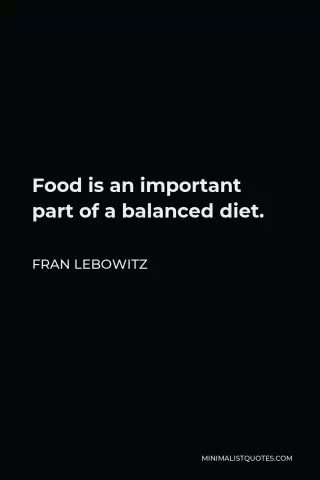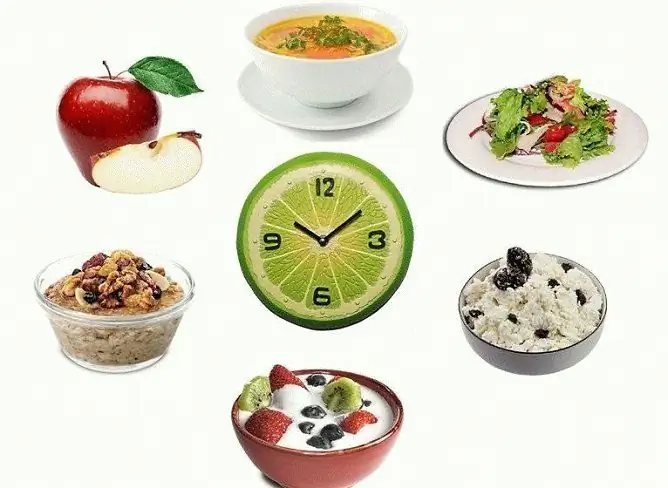- Author Rachel Wainwright wainwright@abchealthonline.com.
- Public 2023-12-15 07:39.
- Last modified 2025-11-02 20:14.
A healthy diet

A healthy diet is designed to preserve human health for many years. Adhering to certain nutritional rules is absolutely realistic and in adulthood to live a high-quality and fulfilling life.
General principles of a healthy diet
The most important rule of organizing a healthy diet is to maintain a balance between consumed and wasted calories. The approximate figure for women is 1800 kcal per day, for men - 2000-2100 kcal. At the same time, during periods of weight loss, these indicators decrease to 1400 kcal. A more accurate calculation is carried out on a case-by-case basis.
A healthy diet is diverse. In your daily menu, you should include as many healthy foods as possible, paying special attention to those that you use less often.
Serving size is also important in organizing a healthy diet. Today it has been proven that it should be equal to the volume of a glass - two hundred grams. This portion is physiological for the digestive system, helps to maintain the health and shape of the body.
The majority of a healthy diet should be plant-based foods high in indigestible fiber. So, several times a week, you should include in your menu dishes from legumes, prepare side dishes for protein products from vegetables, and snack with fruits or nuts between meals.
Compliance with the drinking regime is one of the most important pillars of a healthy diet. The volume of clean non-carbonated water consumed daily should be at least two liters, and in the hot season it should reach three. At the same time, tea, coffee and other drinks cannot act as substitutes for water.
Harmful products - sugary carbonated drinks, canned food, sausages, salty and smoked snacks - should be minimized. It is known that extra calories are wasted during movement, and daily activity is necessary in the process of maintaining a healthy diet.
All the right habits of a healthy diet should not be implemented at once, as the risk of breakdown is high. At each stage, a specific step should be worked out and consolidated. Before starting each next meal, it is useful to analyze the value of foods for the body and make their consumption conscious.
It is generally known that food should be chewed slowly, since satiety comes about 15 minutes after the start of the meal. Based on this fact, it is quite understandable why one should leave the table with a feeling of slight hunger. You should also not eat on the run, in a hurry, or in front of the TV, as it has been proven that in such cases much more food is eaten. It is also useful to know that people who include various soups in their daily diet eat 30% less per day than others.
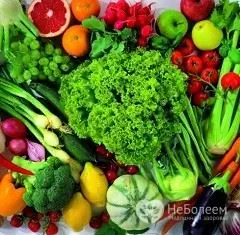
Among nutritionists, there is such a rule: "If you want to eat something - drink some water." Today this phenomenon has been sufficiently studied: it turns out that the human body does not quite clearly differentiate these two needs, and the feeling of thirst is often mistaken for a feeling of hunger. If there is precisely a feeling of hunger, then a glass of water drunk before a meal will take up a certain gastric volume, therefore, the amount of food eaten will be less.
It is also important to correlate meals with your own biological clock. A healthy diet provides that you need to eat breakfast no later than an hour after waking up. There should be at least four meals in total, and preferably five or even six. Thus, the time intervals between them will be 2.5-3 hours.
Healthy diet for the week
Guided by the listed principles, it is easy to compose a healthy diet for a week based on your own taste preferences. Schematically, it may look like this:
- Breakfast - porridge;
- Second breakfast - whole grain breads, fruits;
- Lunch - vegetable soup and meat or fish with vegetables;
- Afternoon snack - green tea with a slice of low-fat cheese;
- Dinner - low fat cottage cheese;
- Before going to bed - a glass of kefir.
Found a mistake in the text? Select it and press Ctrl + Enter.

